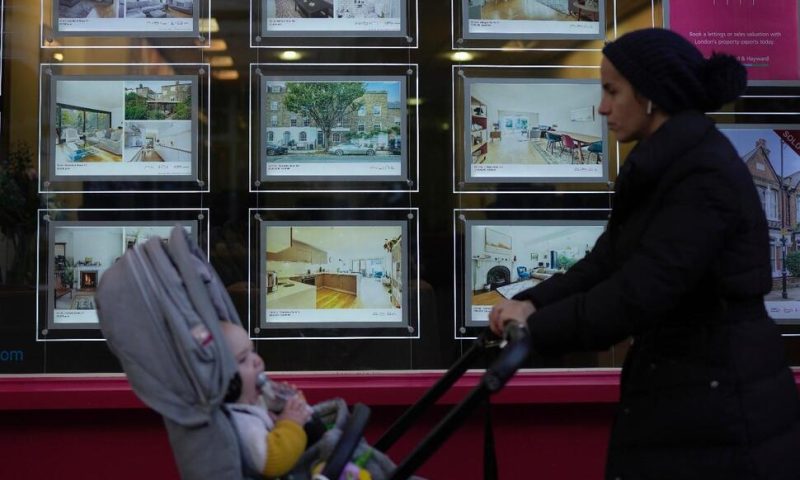Homeowners and renters in the U.K. are facing further grim news as mortgage rates hit levels not seen since unfunded tax cuts announced by the government last fall spooked investors
LONDON — Homeowners and renters in the U.K. faced further grim news Tuesday as mortgage rates hit levels not seen since unfunded tax cuts announced by the government last fall spooked investors.
With the Bank of England raising interest rates to a 15-year high of 5% to battle high inflation, it’s natural for lenders to increase the cost of borrowing to consumers and businesses. But inflation is proving more stubborn than expected, and the bank is expected to keep hiking rates, potentially to 6%, a level not seen since 2001.
That prospect is having a knock-on effect in the cost of mortgages. According to financial information company Moneyfacts, the average rate for a five-year fixed rate mortgage in the U.K. hit 6.01% on Tuesday from 5.97% the previous day.
That’s the highest since the aftermath of last fall’s tax plan from Liz Truss’ short-lived government, which caused investors to lose faith in the state of Britain’s public finances.
The worry is that mortgage rates could surpass those levels if the central bank keeps hiking, creating another pain point amid a cost-of-living crisis that has fueled strikes by workers seeking higher pay.
“It gives me no pleasure to say that we could realistically see some fixed rates reach 7% before the summer is out,” said Paul Welch, CEO at London-based mortgage broker LargeMortgageLoans.com.
Rishi Sunak, Truss’ replacement as prime minister, made halving consumer price inflation in 2023 to around 5% his central pledge. However, with inflation running at 8.7% in the year to May, there are real doubts as to whether that ambition will be achieved.
While acknowledging Tuesday that inflation is “proving more persistent than people anticipated,” Sunak would not be drawn on the probability of his target being met.
Many homeowners will be cushioned from recent increases as they fixed their mortgages when the central bank’s main interest rate was near-zero during the coronavirus pandemic.
However, those whose fixed-rate terms expire over the coming months — more than 1 million households — will face much higher borrowing rates when they look to lock in new deals. Homeowners who are renting out properties also will be tempted to pass on their higher mortgage costs.
Unlike the U.S., where many homeowners fix their mortgage rates for 30 years, the prevailing habit in the U.K. is to fix a rate for much shorter periods of time. After that ends, they move to their lender’s usually higher variable rate or seek out other deals.

